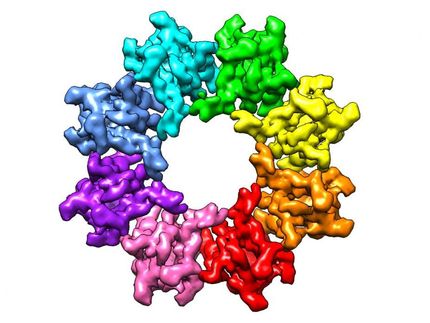MU researcher uses bacteria to make radioactive metals inert
Scientist is studying bacteria that could clean contaminated water bodies across the US
The Lost Orphan Mine below the Grand Canyon hasn't produced uranium since the 1960s, but radioactive residue still contaminates the area. Cleaning the region takes an expensive process that is only done in extreme cases, but Judy Wall, a biochemistry professor at the University of Missouri College of agriculture, food and Natural Resources, is researching the use of sulfate-reducing bacteria to convert toxic radioactive metal to inert substances, a much more economical solution.
The bacteria Wall is studying are bio-corrosives and can change the solubility of heavy metals. They can take uranium and convert it to uraninite, a nearly insoluble substance that will sink to the bottom of a lake or stream. Wall is looking into the bacteria's water cleansing ability and how long the changed material would remain inert.
Wall's research could also be beneficial to heavy metal pollution from storage tanks and industrial waste. The bacteria are already present in more than 7,000 heavy metal contaminated sites, but they live in a specific range of oxygen and temperature, making them difficult to control.
"Our research must be done in the absence of air," Wall said. "Obviously, none but the most committed – and stubborn – will work with them."
Even if an oxygen-tolerant strain were developed, there are still multiple factors that would make applying the bacteria challenging, and these microbes can contribute to massive iron corrosion.
"Knowledge of the way bacteria live in the environment, in microbial communities, is still in its infancy," Wall said. "We just don't know a lot about the communication systems among microbes."
Wall and researchers from the Lawrence Berkley National Laboratory in California are investigating the bacterium's basic genetics and hope to determine its growth limits and activity in natural settings, including how to make its interactions with metals sustainable. They have already identified a few genes that are critical to converting uranium.
Other news from the department science

Get the life science industry in your inbox
By submitting this form you agree that LUMITOS AG will send you the newsletter(s) selected above by email. Your data will not be passed on to third parties. Your data will be stored and processed in accordance with our data protection regulations. LUMITOS may contact you by email for the purpose of advertising or market and opinion surveys. You can revoke your consent at any time without giving reasons to LUMITOS AG, Ernst-Augustin-Str. 2, 12489 Berlin, Germany or by e-mail at revoke@lumitos.com with effect for the future. In addition, each email contains a link to unsubscribe from the corresponding newsletter.


















































